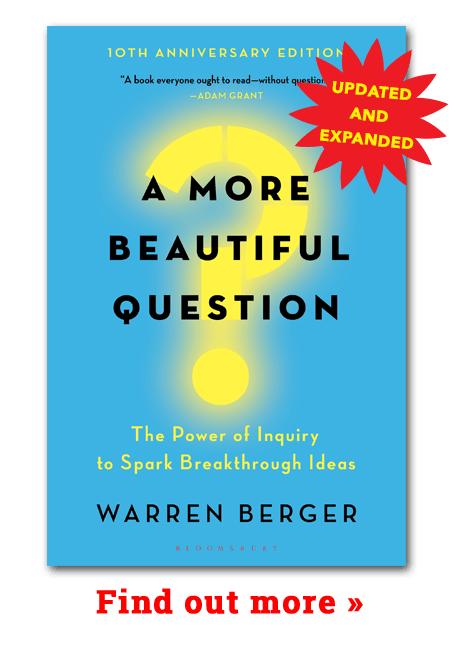With every new year, people resolve to make changes in their lives. But I’m convinced it would make sense for people to swap out their traditional resolutions for questions—specifically, questions that are designed to spark changes in behavior. For lack of a better term, let’s call these “questolutions,” meaning a resolution put in the form of a question.
What started me thinking about this notion of using questions in place of resolutions was a research study cited in the terrific “This Column Will Change Your Life” psychology column written by The Guardian’s Oliver Burkeman (Oliver also wrote the wonderful book, The Antidote: Happiness for People Who Can’t Stand Positive Thinking). The study, conducted by three professors at the University of Illinois, found that when people are trying to motivate themselves to do something, questions work better than statements or commands. In other words, asking “Will I do X?” is more motivating than declaring “I will do X!”
Why do questions motivate us more than resolutions? To quote the study’s authors, “self-posed questions about a future behavior may inspire thoughts about autonomous or intrinsically motivated reasons to pursue a goal, leading a person to form corresponding intentions and ultimately to perform the behavior.” Okay, that’s a mouthful, but let me put forth a few simple and clear reasons why questions can work better than resolutions when it comes to changing behavior.
First of all, questions are more engaging than statements. Questions invite you (or even challenge you) to think about potential answers. They get your brain working right away on a problem. For example: suppose, instead of resolving that, “I will meet more interesting people this year!” you were to ask yourself, “How might I meet more interesting people this year?” That question is likely to trigger speculative thought: “Well, what if I were to do X,” or “What if I tried to do Y”… now you are already thinking of potential ways to meet new people.
Questions are also less intimidating than resolutions. They put less pressure on you. Admittedly, this can be good or bad. Some might feel they need pressure to get themselves to act, but we all know that the self-imposed pressure of resolutions rarely produces immediate results—and this, in turn, may cause us to quickly abandon those resolutions. A question, on the other hand, offers a bit more leeway. It doesn’t necessarily have to be answered right away or definitively—we can be working on it, taking steps, making progress toward an answer.
Plus, questions tend to be more “shareable” than statements. No one really wants to hear your declarations of all the wonderful things you’re promising to do. But when you share a question with others (I wonder how I could do a better job of X, or How might I improve Y), it can have the effect of inviting people to think about that question themselves—and they may end up helping you to arrive at an answer.
If you’re already worried that you might not stick to this year’s resolutions, why not think about re-phrasing your resolutions as questions? And while you’re at it, think about using the highly-effective “How might I” approach to wording your questions. Let me know how this works—and feel free to share your “Questolutions” with me on the site.



